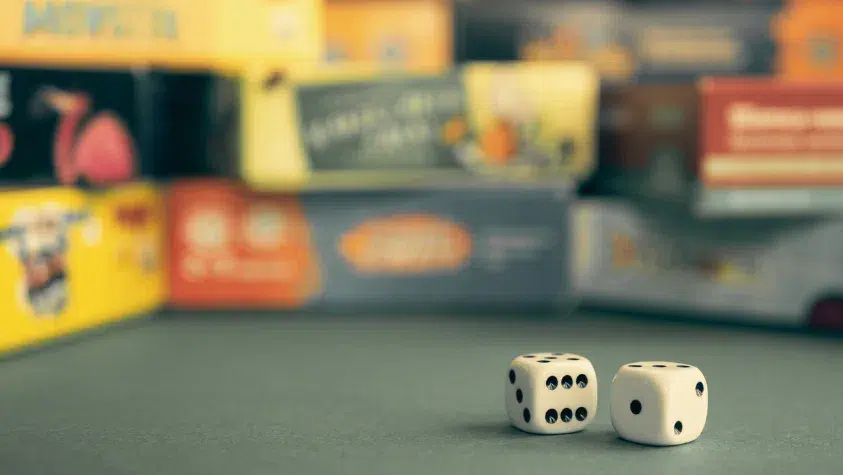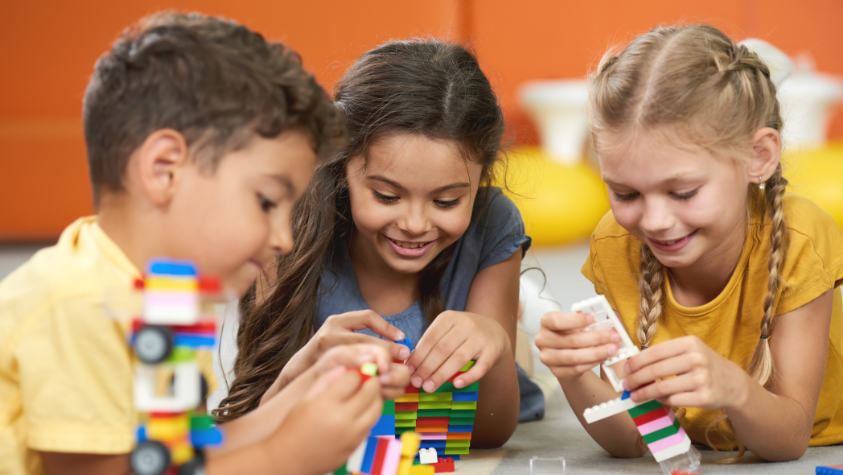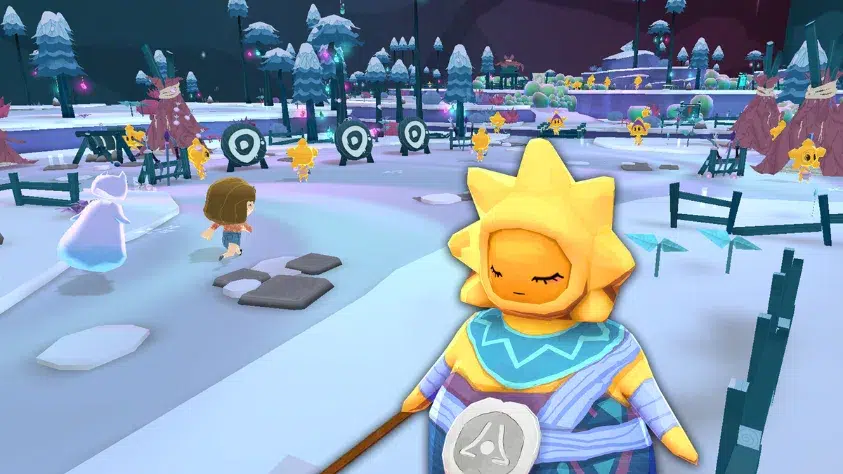
Why is playing crucial to your child’s development and well-being?

These days, our children spend less time playing. It has to be said that they have a busy schedule and their day-to-day lives are meticulous! Between school, homework and extra-curricular activities, our little ministers sometimes run out of time to build a spaceship out of toilet rolls or organise a fashion show in the living room.
But what if they’re missing out on much more than a few laughs and a bit of exercise? What if playing was as important as sleeping or eating? Babaoo Mag has the facts for you! 💡
Playing is healthy!
Often considered an anecdotal activity, playing is nevertheless of vital importance in your child’s development.
Playing helps develop cognitive skills
As well as providing moments of joy, pleasure and fun, numerous studies have established a clear correlation between playing and the acquisition of key skills that enable us to cope well with life’s challenges. 💪
Whether in animals or humans, recent scientific advances have shown that playing has a significant impact on brain development, and more specifically on the prefrontal cortex, a brain area notably involved in the development of empathy, emotion management, inhibitory control and social adaptation.
Playing develops emotional intelligence
By playing with friends, your child learns to perceive other people’s emotions and understand their point of view. Without realising it, they are developing invaluable interpersonal skills that will be essential for their future adult life.
More than just playing: developing
Climbing trees, playing hide-and-seek, dressing up or laughing over a board game… 🎲 As well as being fun and recreational, these different ways of playing are all opportunities to boost your child’s motor, cerebral and emotional development.
By playing, they can :
- Become more aware of their body: creating a block building, dancing and skipping will help them to develop their fine motor skills, coordination and balance, as well as helping them to find their way around in space.
- Stimulate their imagination and creativity: drawing, painting or making up stories allow your child to express themselves freely and create without constraint.
- Develop their memory: what better way to get their attention and train their memory than with a good jigsaw puzzle?
- Develop empathy: role-playing, for example, invites your child to put themselves in someone else’s shoes, to understand their emotions and feelings.
- Improve their communication and social skills: playing in a team requires them to cooperate, to make themselves heard, but also to listen to others in order to achieve a common goal.
- Adapting to unfamiliar situations, managing stress and boosting self-confidence: facing up to the unknown and getting out of their comfort zone means they feel a new pressure that they will have to learn to cope with. Once they’ve met the challenge, their self-confidence will be boosted.
- Put failure into perspective and learn to persevere: by playing, your child will learn to win, but also to lose. They will have to deal with frustration and persevere despite the difficulties they encounter.
- Overcome their fears and understand their limits: going down the highest slide in the playground will help them understand what scares them and make them aware of their ability to overcome obstacles.
Not so anecdotal, is it? 🧠
Playing to learn
At home: opt for outdoor play
Over the last thirty years or so, outdoor play has gone from strength to strength. Today, children in the UK spend half as much time outdoors as their parents did at the same age. Even more worryingly, in the United States, children spend less than 10 minutes a day outdoors, compared with more than 7 hours in front of a screen… And technology has a lot to do with it.
If playing is good for you, playing outside is even better! Outdoors, your little adventurer can run, jump, climb… and moving is good for your health! Not to mention the benefits of sunlight and vitamin D.
But above all, playing outdoors means connecting with nature and discovering an environment that encourages imagination and creativity. Hello treasure hunts, imaginary scenarios and crazy epics for supercharged cognitive development!
✏ Baba’Tips: You don’t need the latest gadgets to have fun! A Frisbee, a few branches or a box of chalk. For the rest, let their imagination work… and prepare to be amazed!
At school: time to play and manipulate
In the classroom too, play can change everything. Teaching methods have evolved a great deal, giving more and more room to playful activities and manipulatives to stimulate children’s interest, motivation and curiosity, while at the same time helping them to learn their lessons.
For example, some teachers use the Alphas method to teach their pupils to read and write. Alphas are imaginary characters, each representing a basic sound in the French language. Through stories, role-playing and songs, children learn to recognise these characters and associate the sounds with the corresponding letters.
Today’s curricula recommend that new concepts should be introduced through hands-on experience. For example, children will manipulate geometric solids (in 3D) with their hands before encountering the abstract concept of geometric shape (in 2D). Montessori, Freinet and other active teaching methods make much of these new practices, which encourage children to engage their senses, actively manipulate elements and build their understanding through concrete, interactive experiences.
Babaoo recap!
Much more than just entertainment, playing is essential to your child’s well-being. Playing means inventing, creating, exploring, communicating, expressing and sharing. Every moment spent playing is an opportunity to learn, grow and develop the skills needed to tame the adult world.
At home or at school, alone or with friends, at the console (a little) or in the garden (a lot)… the most important thing is to play! And even when boredom creeps in, the mind wakes up and ideas fly, pushing back the boundaries of creativity to bring to life the most brilliant of games: the one we’ve just invented! 💡
You may also be interested in these articles


